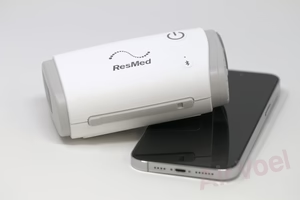Digital Therapeutics: More Than Pills in Treating Disease

What Are Digital Therapeutics?
Digital therapeutics, or DTx, is software that prevent, treats, or manages disease. Not fitness or wellness apps, these products are developed with clinical research, trialed, and validated by entities such as the FDA. They walk you through behavior change, personalized care plans, and real-time, data-driven feedback.
For example, a patient who is diabetic can use a DTx app that monitors blood glucose, offers nutrition counseling, and provides real-time guidance for healthy glucose levels. It not only compiles data but also helps patients make better decisions with measurable results.
How DTx Is Changing Health Care
Typical healthcare relies on clinic visits and pills. Digital therapeutics extend care beyond those walls, enabling individuals to handle chronic ailments, mental health issues, and rehabilitation programs from computers or phones.
The largest change is in personalization and access. You no longer need to wait for monthly adjustments to fine-tune treatment. DTx programs track your health daily and make instant recommendations. This kind of feedback engages you more actively in your own health.
This transition is also revolutionizing mental health care. Online platforms offer continuing therapeutic care, supporting individuals who require structured help like FL Treatment for Mental Illness. With directed exercises, cognitive behavioral therapy (CBT), and mood management tools, DTx apps empower patients to progress between sessions.
The Science of Behavior Change
DTx is rooted in clinical data and behavioral science. It does not just instruct you but helps you understand why certain habits make an impact.
Most DTx programs use behavioral nudges to encourage daily use. They track your activity, predict when motivation may drop, and send reminders to keep you on track. Coupled with wearables or medical sensors, they create a feedback loop that supports both prevention and recovery.
For chronic conditions like hypertension or obesity, regular monitoring helps users see their improvement and strengthen good habits. It is gradual, data-driven, and aligns with the natural process of habit formation.
Extending into Mental Health
Although DTx originated with chronic disease, they have expanded into mental health, addiction, and recovery. Therapy centers are embracing online technologies to support long-term results.
For instance, an Addiction Treatment Center can adopt digital therapeutics for patients after hospitalization. These applications track emotional patterns, present relapse prevention strategies, and connect individuals to virtual counseling experts. This ensures recovery care extends beyond the clinic.
Digital therapeutics also help patients with co-diagnosis, where mental illness and substance use disorder occur simultaneously. The programs provide structured therapy modules and progress tracking to help patients stay engaged and reduce relapse risk.
DTx in Treating Addiction
Addiction recovery relies on enduring behavior change, making digital therapeutics an ideal match. Recovery apps include journaling, counseling, and mood tracking features tailored to each individual. They use data to identify risk patterns and alert users when they may need intervention.
Facilities such as Drug and Alcohol Rehab in NJ often combine technology with therapy. This approach keeps patients connected long after completing a program. The applications serve as a safety net, providing reminders, coping tools, and access to online forums.
Clinicians also benefit by being able to monitor patient progress and adherence in real time, adjusting care plans as needed. For patients, this means consistent care beyond clinic hours.
A Step Ahead of Preventive Care
The most powerful aspect of digital therapeutics is prevention. Instead of waiting for illness, DTx promotes early intervention. When used daily, these tools help patients recognize red flags before they become serious problems.
For example, a mental health monitoring app can detect early signs of depression or anxiety and prompt individuals to seek help. Similarly, those in recovery benefit from early detection of emotional or behavioral relapse triggers that could lead to setbacks.
Preventive digital therapeutics also lower healthcare costs by preventing hospitalizations and advanced treatments through early management.
Challenges and What’s Ahead
Despite their potential, digital therapeutics also pose challenges. Some patients may not have access to stable internet or smartphones. Data protection and regulation require stronger systems to ensure privacy and safety.
However, collaboration among hospitals, technology firms, and insurers is expanding access and reducing costs. As clinical trials continue to prove their effectiveness, DTx products are becoming standard components of care strategies.
AI-driven tools and connected devices will continue to advance DTx, processing data in real time, personalizing care instantly, and communicating directly with doctors.
The Bottom Line
Digital therapeutics are not just digital tools; they are medicine. They combine behavioral science, clinical research, and technology to empower patients to take control of their health.
Whether you live with diabetes, are recovering from addiction, or need emotional balance, DTx can make your care more personalized, consistent, and effective. The future of healthcare is not about replacing doctors but about providing patients with smarter tools for continuous, connected healing.

Source: Digital Therapeutics: More Than Pills in Treating Disease




